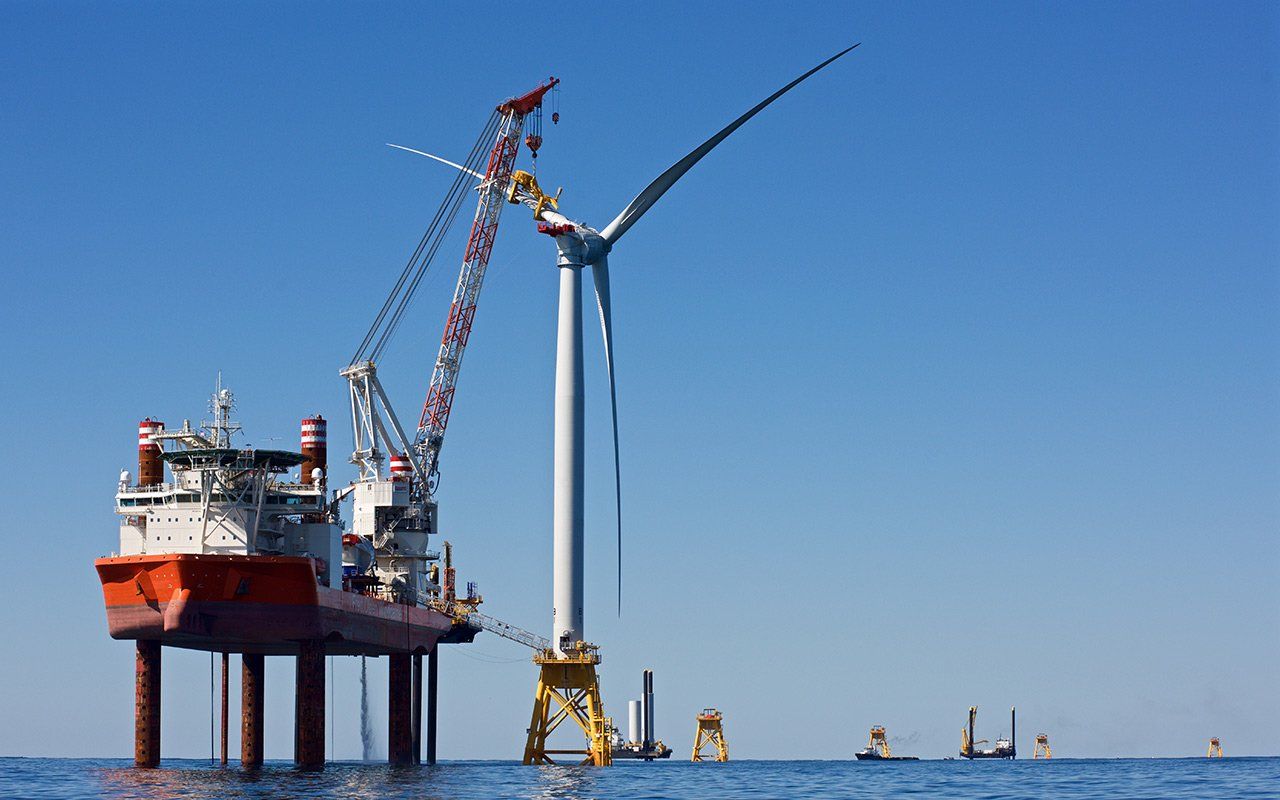Net Zero: sleepwalking to disaster
News & Social Media / Post
Net Zero is pushing us towards a national energy emergency

I almost feel like I have to apologise for banging on about Net Zero but it has far reaching consequences that will soon eclipse most other issues as householders have to make tough choices to make ends meet.
Yesterday the FT reported that the price of securing crucial standby electricity generation for next winter has soared to record levels, reflecting Britain’s tighter supplies as more ageing nuclear power stations close and the few remaining coal-fired plants are phased out.
The bids in Tuesday’s “capacity market” auction hit their highest levels since the process was introduced by the UK government in 2014. The auctions award contracts to generators to be available to meet demand if it unexpectedly spikes in the colder months. The standby capacity process was introduced because of Britain’s increasing reliance on weather-dependent renewable sources of energy. There are several types of auctions, with most back-up generation secured several years in advance.
All capacity in the auction for the winter of 2022-23 will be contracted at £75 per kilowatt, a record level. Energy consultancy Cornwall Insight said the highest price in previous comparable auctions was £45.
Because of the unreliability of wind power, energy consumers face paying more than £30 million to keep Britain’s last coal-fired power plant open next winter as the government seeks to bolster electricity supplies. The expected subsidy is to be paid by households and businesses on their energy bills despite a looming ban on the dirtiest form of power generation from October 2024. Britain’s other coal plants are both due to shut before next winter.
The cost of balancing the grid is now astronomical. The top ten most expensive days ever have occurred in the last three months, as costs soar to £967 million. This is up significantly from £337 million for the same period – September to November – in 2020, representing a jump of 294 percent.
Much of this can be attributed to Ed Davey’s insane decision not to build more new gas storage which serves as a price regulator, and the EU Large Combustion Plant Directive taking coal out of the mix, but ultimately our obsession with wind turbines is why we’re reliant on gas generation to begin with. Most conventional plant is designed to run at a steady state for optimal thermal efficiency, and only gas stations have the inherent flexibility to cope with variability at short notice. When the wind drops and the sun goes in, operators need to find tens of gigawatts quickly.
That means that when the wind is blowing gas stations are running below their optimal efficiency. The grid is obliged by law to prioritise renewable energy. The system is inherently inefficient and as renewable generation capacity grows, it creates more periods of low wholesale electricity prices that force coal and gas generation to either shut down or operate at a loss. This underutilisation of conventional generation adds to the capital costs of any new plant, which in part, allows the renewable energy companies to claim their energy is cheaper.
But this claim is a lie any which way you look at it. The “levelised cost” tells another story. Levelised cost is (the average cost of the lifetime of the plant per MWh of electricity generated. It reflects the cost of building, operating and decommissioning a generic plant for each technology. Wind energy only looks cheaper by way of the carbon taxes added to gas plant.
Were it not for the capital costs wind adds to gas plant and carbon taxes, gas plant would be considerably cheaper than offshore wind. And that’s only half the picture, Levelised cost does not account for the vast subsidies paid to wind generators. It’s difficult to establish the overall impact, but even as gas prices soar, wind can only be considered cheaper by tricks of accountancy. Or as we call it, lying. Thanks to Net Zero policies, gas generation is set to become more expensive as requirements to install carbon capture are introduced,
The inherent assumption is that wind will continue to improve in terms of capacity and availability, and capital costs will come down but estimated economic working lives of turbines are turning out to be much shorter than predicted, which will have a massive effect on capital cost apportionments. Moreover, we now have problems with grid congestion, and as old plant is taken off line we have far less “spinning reserve” to call upon, necessitating expensive battery back-up and diesel generators. Older gas plant also requires extensive retrofitting to cope with wind intermittency.
Essentially, wind energy is a wholly unworkable means of generating power for a modern grid (unless you’re prepared to throw billions upon billions on mitigating the problems it creates). The grid is being redesigned around the inadequacies of wind power rather than choosing reliable baseload technology. They knew this from the outset, but it’s only other people’s money. They got drunk on the idea of a zero carbon future with zero regard for how it would affect our lives, or whether the economy could sustain it.
There is now no way back. The decisions needed to head off this crisis should have been made about ten years ago, and even a major policy shift now would take years to come into effect. Since there is no sign of a fundamental shift – and only delays in implementation – it is almost certain that things can only get worse. The question isn’t whether Rushi Sunak’s bung to help with energy bills is enough (we know it isn’t). It’s whether he can repeat it and increase it year after year. And we know he can’t.
We are creeping up on what is set to be a national emergency, where there is now a high probability of mandatory energy rationing through smart meters in order to stave off rolling blackouts. The poorest will be punished with predatory surge pricing.
This has reignited the old arguments over fracking, and there are signs that Net Zero is set to be as divisive as Brexit in the Tory party, as much of the parliamentary party takes its lead from the green blob. The government has ordered the sealing of shale wells in Lancashire in a move reminiscent with Labour’s scrapping of TSR-2. There is no hint of realisation how serious our predicament is. Boris Johnson has locked us into a disastrous policy that will destroy more jobs than Net Zero hopes to create.
It’s certainly true that fracking is no silver bullet but no government can afford to take any options of the table, particularly when we’re buying gas off the spot market (when it’s the most expensive) to plug the gaps in the dead of winter. You would think this would be an open goal for any serious opposition, but Labour’s policy is to rob Peter to pay Paul rather than addressing the systemic dysfunction in our energy policy.
Ultimately we should have replaced our nuclear stations at least a decade ago, but inflation of safety requirements have increased costs and created considerable technical problems and delays. We could still replace our lost nuclear capacity, but we’d need to be on a war footing to accomplish it any time before 2032, which isn’t going to be in time. Arguably we are better placed to cut through the red tape now that we are out of the EU. It’s starting to look like the culmination of EU and member states green energy policies will dwarf the cost of Brexit. It’s a shame we couldn’t get out twenty years sooner.
For the interim there is no cheap option for energy. Exorbitant bills are here to stay thanks to two decades of intensified climate virtue signalling. Those chickens are coming home to roost just as the world economy is reeling from the shock of Covid, and when China has cornered the market on critical minerals. For most life is going to get harder and it’s hard to overstate just how big of a mess we’re in. If you thought Brexit was was politically turbulent, you ain’t seen nothing yet.
Recent National News











